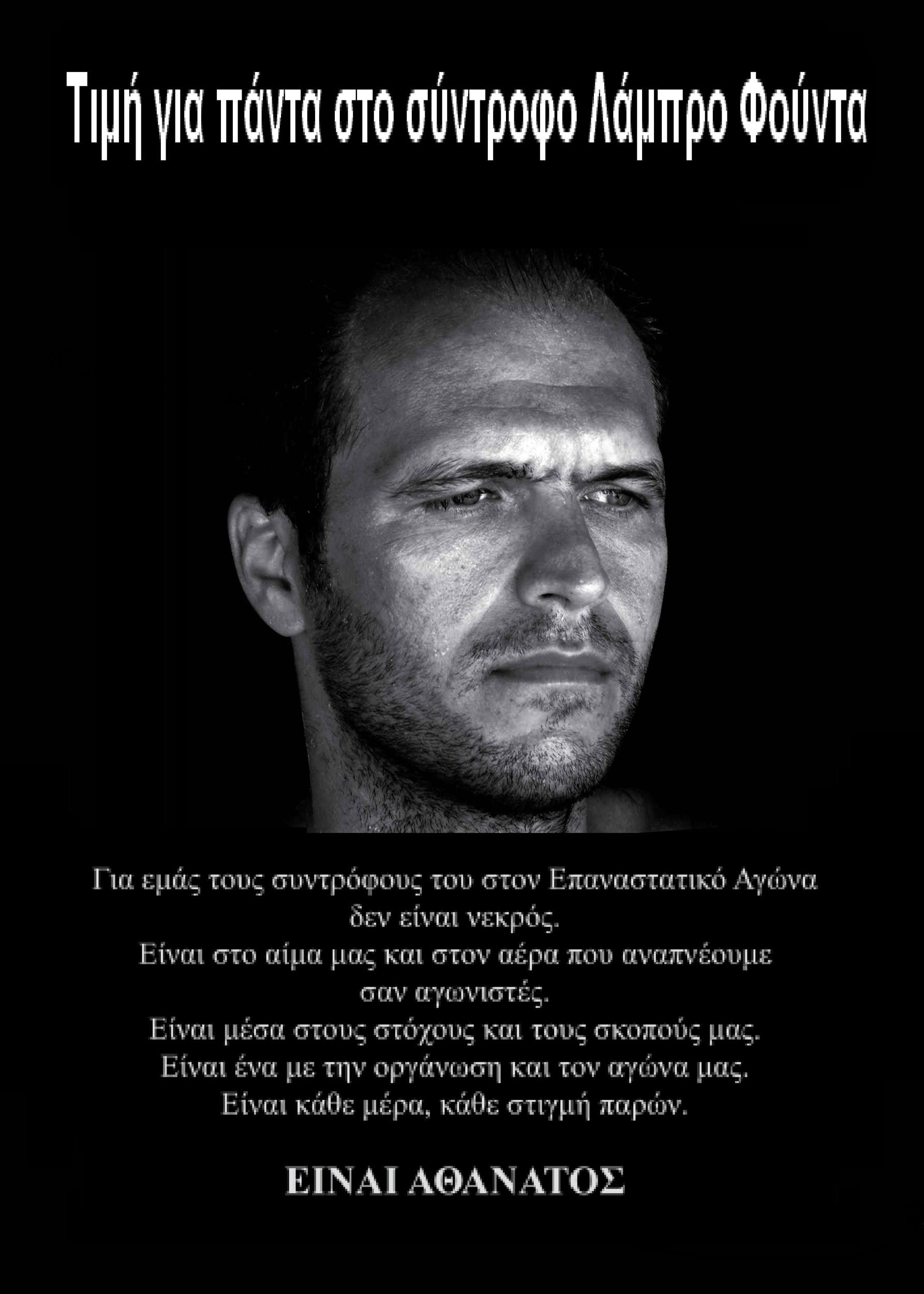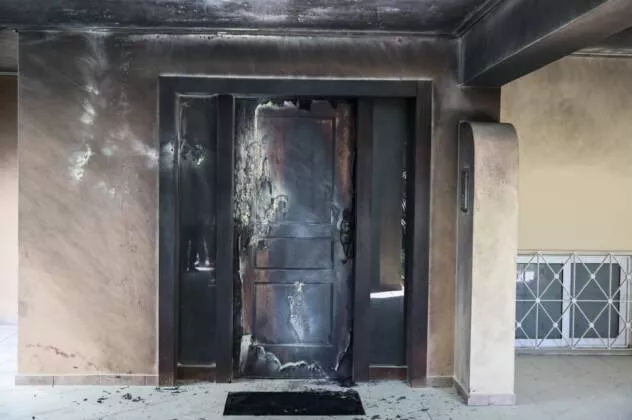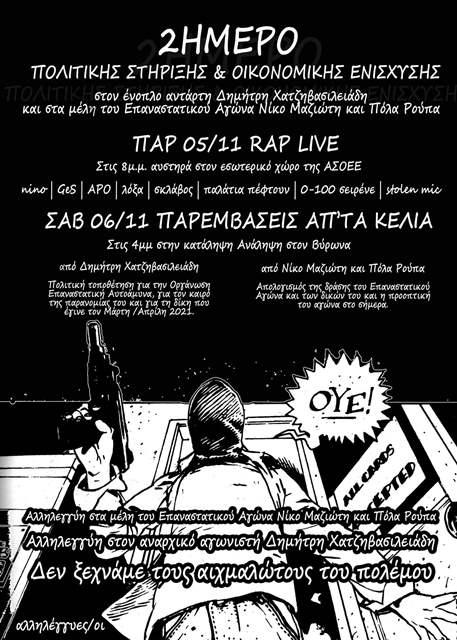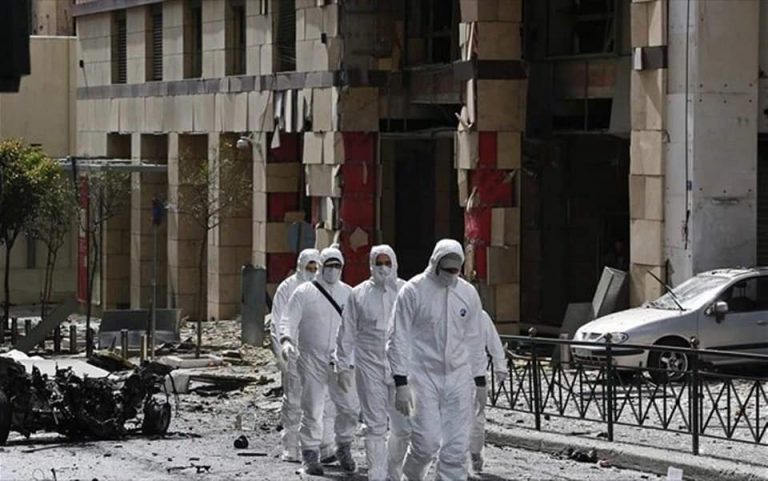Solidarity to comrade Thanos Chatziangelou, member of the Anarchist Action organization who is on hunger and thirst strike since 19/12/2022 and is in danger if he has not already suffered permanent damage to his health.
We are living in times of a general unbridling of state violence and repression in a general environment of social crisis, misery and impoverishment: Suppression of self-managed spaces of resistance, violent repression of demonstrations, state killings with the organs of the state going unpunished, continuous hardening of criminal and ”penitentiary” legislation with one of its main objectives being to deal with political opponents of the state.
The state’s increasingly intense attack on prisoner militants has reached the point where it does not even accept the demands made through hunger strikes, which are not even mentioned in the new Penitentiary Code, as they were in the old one, but involuntary hospitalisation and forced feeding, which constitutes torture, are now being rearranged.
Comrade Thanos’ request to return to Korydallos prison should be granted.
Solidarity with the anarchist prisoners L. Vougiouklaki, F. Daskala, G. Michailidis, K. Dimalexis and I. Rodopoulos, who are on hunger strike and accompanying Thanos Chatziangelou, who are also on hunger strike.
No comrade should be left alone in the face of state repression.
Pola Roupa, third ward of Eleonas prison of Thebes
Nikos Maziotis, 4th ward, Domokos prison
Members of the Revolutionary Struggle
Source: athens.indymedia






